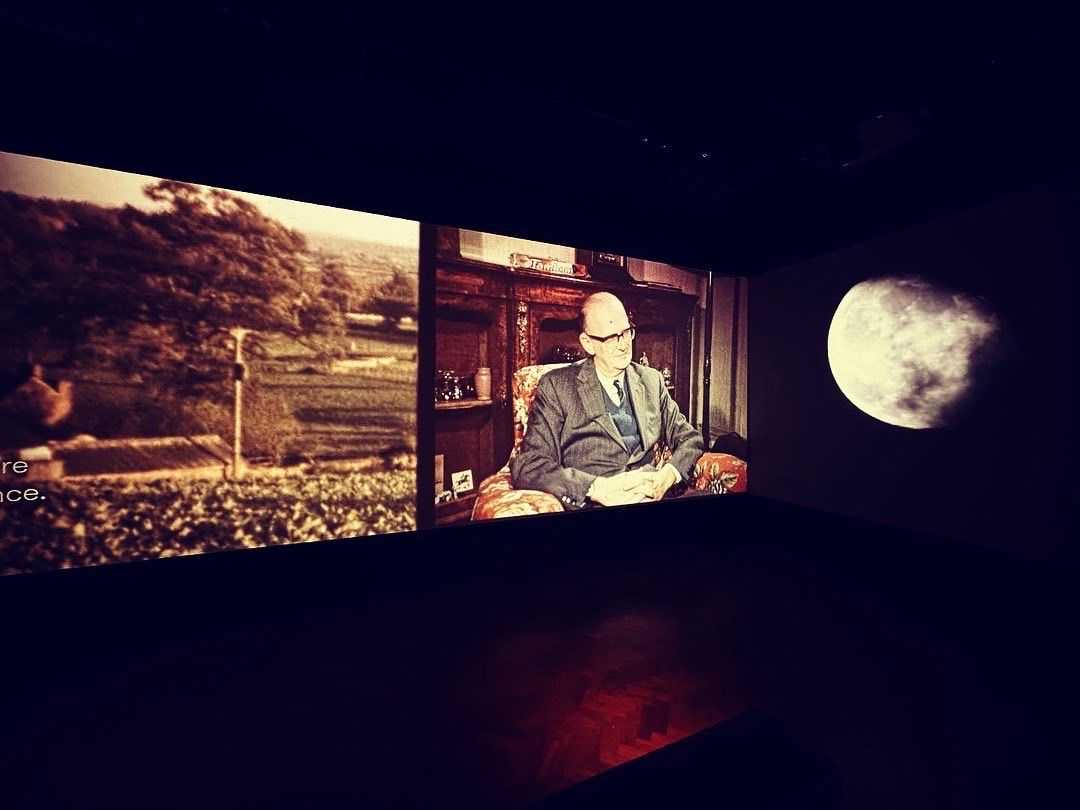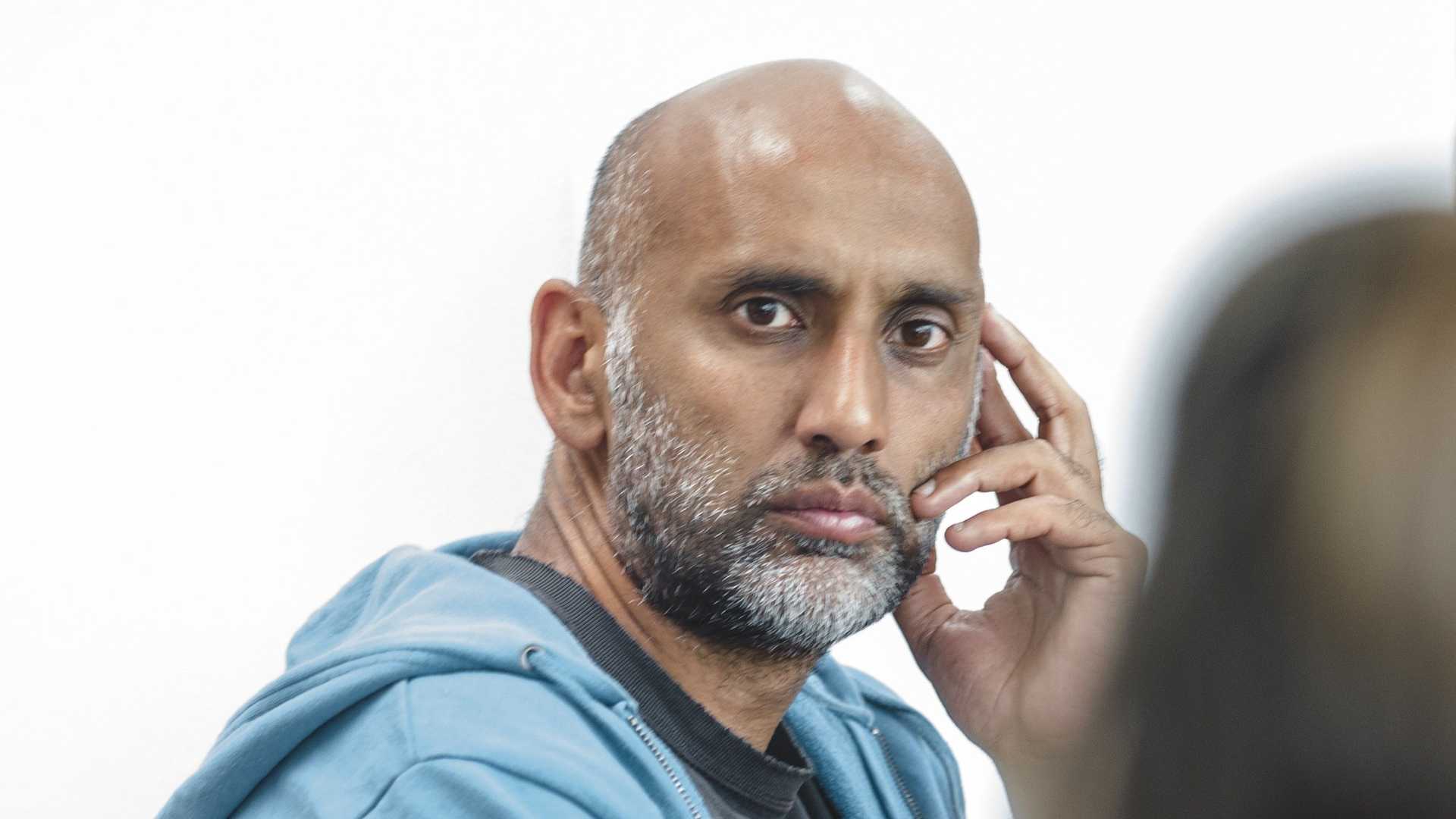“Our ecological crisis is above all a crisis of behavior and of relation.”Ashish Ghadiali - founder of Radical Ecology
Radical Ecology: Supporting climate justice through creative practice
Radical Ecology is a non-profit organization that was founded by our new Allianz Foundation Fellow Ashish Ghadiali. In this interview, Ashish talks about why racial justice and environmental justice are two sides of the same coin and how art needs to conceive of itself as an agent of environmental justice.
September 28, 2023

Installation Planetary Imagination (2023) at The Box in Plymouth © Ashish Ghadiali.
Risktaker Insight: Ashish Ghadiali and Radical Ecology
Allianz Foundation: “You are a civil society and environmental activist, filmmaker, curator, scholar and journalist. Why are all these functions necessary to bring Radical Ecology to life?”
Ashish Ghadiali: "First off, I’m not sure how many of these things I actually am, but I’ve certainly been committed in recent years to developing relationships with people who are all of these things and more, exchanging viewpoints, opening myself up to new ways of thinking and new ways of doing, being vulnerable in that way and making new work together, collaborating. That way we start to participate in a radical ecology of our own creation, a community and an ecology for change that develops its own roots in relation to the soil of our time and the history that we are shaping and that shapes us too in an ongoing process of mutual reciprocity. Climate collapse is often thought of as a technical problem, to be dealt with through technical solutions, but my own journey has brought me into the conviction that our ecological crisis is above all a crisis of behavior and of relation. A collective failure of the imagination, as it were, to recognize how we are connected to one another and to the planet, our true nature.
We live in silos. We operate in silos all too often. I’m baffled, as I embark on this fellowship for example, by how an organization that espouses values such as those described by the Allianz Foundation also presents itself through a board where BIPOC voices are so scarcely represented (Perhaps this fellowship will elucidate the mystery for me!). In a context where the escalating impacts of climate breakdown are so profoundly racialized, and on a global scale, it seems we continue to swim in a sea of white supremacy even where we speak of belief in values like openness, diversity and social justice. In that sense aren’t we really citizens of the confused world that came after the Tower of Babel?
I believe that the climate crisis is essentially an expression of this greater crisis in our culture, this confusion, and that it will only be resolved through the transformation of our culture from the depths. For me knowledge and fulfilment, in that sense, comes right now from igniting the sparks of imagination and connectivity that are generated by the movement between disciplines and languages. It’s about running the distance between the personal and the planetary (and back again), by nurturing imagination where it is most needed. This can happen in the citadels of climate science just like the civic centres of our villages and towns that have been ravaged by a decade of austerity, populist xenophobia, ecological breakdown and energy price inflation, built on the centuries of distortion that emanate from our shared histories of empire and global extractivism.
That old world is dying. Our work is to breathe new life into its atmosphere, building bridges between worlds too often deaf and blind to one another, between art and science, between the global north and the global south, between the experts and civil society, between human history and the multiverse of interspecies life as between the forms and functions you’ve described. Wherever we stand, in the context of dynamism and movement like this, we are supported to see ourselves and our activity from the intimacy of our own perspective and through the strangeness of the other’s gaze at the same time. The energy and intensity of these encounters is also the crucible of our cultural renewal where new life begins to dance."
Allianz Foundation: “How hopeful are you about this in-depth transformation of our societies?”
Ashish Ghadiali: “It will not happen overnight. But accepting our world for what it is, we can also commit to the value of truth and the process of change.”
Allianz Foundation: “Are racial justice and environmental justice two sides of the same coin?”
Ashish Ghadiali: “Yes, race doesn’t really exist except as a construct of the environment that we also create, and justice in the one will quickly emerge as justice in the other when properly conceived.”
Allianz Foundation: "How does art need to conceive of itself to be an agent of environmental justice?”
Ashish Ghadiali: "For me the starting point is to acknowledge that our art, what we do, is never neutral but always the expression of our values, our beliefs and our sense of the place we inhabit in the world, whether explicit in the work we create or simply latent in our assumptions and all that we take for granted. We can choose to act and create from a place of harmony and accord with the cultures of white supremacy, gender violence, anthropocentrism, consumer capitalism. These are the forces that in turn give rise to so many injustices in our present time and in many ways to lean into them is also a path of least resistance since so much power, resource and authority remains invested in the systems and institutions that have emerged out of the historic ascendancy of these forces over hundreds and thousands of years.
Yet we know now that for all their accumulated power, these are the forces that also lead us towards our own extinction. Instead of leaning in, we can ask what it is that lies beyond the shapes and structures of white supremacy, gender violence, anthropocentrism, consumer capitalism. What is it, after all, to be human, and in relation to the life of this living planet now that we know what we know? These are questions that disrupt the status quo but when our art is an expression of inquiry into them, we can also restore in ourselves a sense of intimacy and meaning between ourselves and the planet. This meaning runs through our lives and into the world like a spring that meets the river and then flows into the sea."
Ashish Ghadiali, activist and author, has set out to promote sustainable coexistence and change systemic inequalities that hinder the potential of our world. He states that it is imperative that “we (…) learn now how to participate sustainably in the life of the earth.“ This knowledge and corresponding behavior must be urgently established and passed on to future generations. Ashish is currently working on various book projects, writes for The Guardian newspaper and is active as director of Radical Ecology – an organization that is working across art, research, and policy to advance environmental transformation in response to the planetary crises of our time.
